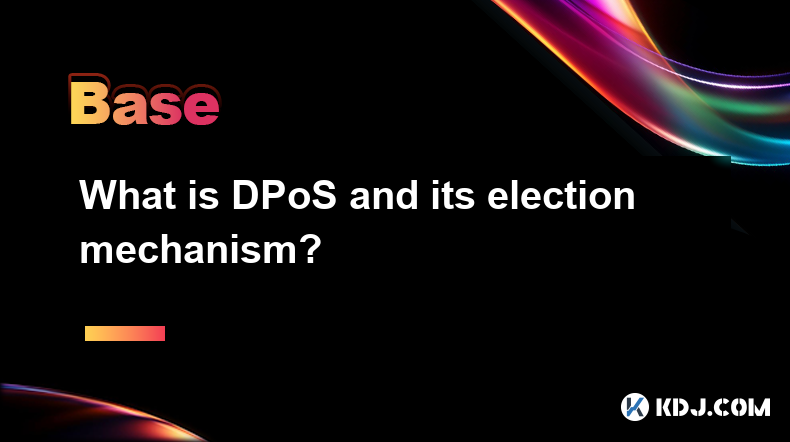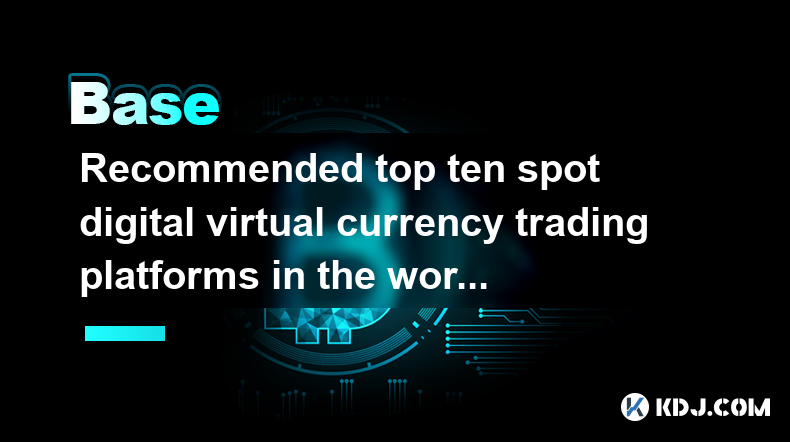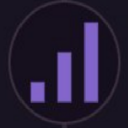-
 Bitcoin
Bitcoin $89,648.9936
3.10% -
 Ethereum
Ethereum $1,634.9935
0.83% -
 Tether USDt
Tether USDt $1.0001
0.00% -
 XRP
XRP $2.1121
0.22% -
 BNB
BNB $607.5525
1.13% -
 Solana
Solana $142.6148
3.47% -
 USDC
USDC $1.0001
0.01% -
 Dogecoin
Dogecoin $0.1661
3.19% -
 TRON
TRON $0.2448
1.39% -
 Cardano
Cardano $0.6440
0.74% -
 Chainlink
Chainlink $13.6009
1.53% -
 Avalanche
Avalanche $20.6094
0.82% -
 UNUS SED LEO
UNUS SED LEO $8.8353
-2.27% -
 Stellar
Stellar $0.2517
-1.99% -
 Sui
Sui $2.3807
6.54% -
 Shiba Inu
Shiba Inu $0.0...01288
2.64% -
 Hedera
Hedera $0.1748
3.14% -
 Toncoin
Toncoin $2.9376
-2.23% -
 Bitcoin Cash
Bitcoin Cash $347.8515
3.11% -
 Hyperliquid
Hyperliquid $18.5705
4.28% -
 Litecoin
Litecoin $80.3426
0.58% -
 Polkadot
Polkadot $3.8094
-2.11% -
 Dai
Dai $1.0000
0.00% -
 Bitget Token
Bitget Token $4.4853
1.04% -
 Ethena USDe
Ethena USDe $0.9992
0.00% -
 Pi
Pi $0.6384
0.98% -
 Monero
Monero $217.3786
0.45% -
 Pepe
Pepe $0.0...08251
4.70% -
 Uniswap
Uniswap $5.4544
0.75% -
 Aptos
Aptos $5.0198
-2.62%
What is DPoS and its election mechanism?
DPoS enhances blockchain efficiency by letting token holders vote for delegates who validate transactions, ensuring a democratic and scalable network.
Apr 08, 2025 at 11:21 am

What is DPoS and its Election Mechanism?
Delegated Proof of Stake (DPoS) is a consensus mechanism used in certain blockchain networks to achieve distributed consensus. Unlike traditional Proof of Work (PoW) or Proof of Stake (PoS) systems, DPoS leverages a voting system to select a limited number of nodes, known as delegates or validators, to validate transactions and produce blocks. This article will delve into the intricacies of DPoS and its election mechanism, providing a comprehensive understanding of how it functions within the cryptocurrency ecosystem.
Understanding DPoS
DPoS is designed to enhance the efficiency and scalability of blockchain networks. In a DPoS system, token holders vote for a set number of delegates who are responsible for maintaining the blockchain. These delegates are typically chosen based on their reputation, technical capabilities, and commitment to the network. The primary goal of DPoS is to ensure that the network remains decentralized while improving transaction speeds and reducing energy consumption compared to PoW systems.
The Role of Delegates in DPoS
In a DPoS network, delegates play a crucial role in the validation and creation of blocks. They are elected by the community and are responsible for processing transactions and adding them to the blockchain. The number of delegates can vary depending on the specific implementation of the DPoS system, but it is generally kept small to ensure efficiency. For example, in the EOS network, there are 21 active block producers at any given time.
The Election Mechanism of DPoS
The election mechanism in DPoS is a critical component that ensures the democratic selection of delegates. Token holders within the network have the power to vote for their preferred delegates. The voting process is typically continuous, allowing token holders to change their votes at any time. This dynamic voting system ensures that delegates remain accountable to the community and can be replaced if they fail to perform their duties effectively.
Voting Process in DPoS
The voting process in DPoS is straightforward but requires active participation from token holders. Here is a detailed breakdown of how voting typically works:
- Token Holder Participation: Token holders must actively participate in the voting process by casting their votes for preferred delegates. The number of votes a token holder has is usually proportional to the number of tokens they hold.
- Vote Weighting: Each vote is weighted based on the number of tokens the voter holds. This means that token holders with more tokens have a greater influence on the election outcome.
- Continuous Voting: Voting in DPoS is continuous, allowing token holders to change their votes at any time. This ensures that the delegate list remains dynamic and responsive to the community's needs.
- Delegate Selection: The delegates with the highest number of votes are selected to become active block producers. The exact number of delegates can vary, but it is typically set to a fixed number to maintain network efficiency.
Ensuring Fairness and Decentralization
To ensure fairness and decentralization in DPoS, several mechanisms are implemented. One such mechanism is the voting threshold, which prevents any single entity from gaining too much control over the network. For example, some DPoS systems set a maximum percentage of votes that any one delegate can receive, ensuring a more balanced distribution of power.
Another important aspect is the rotation of delegates. In some DPoS networks, delegates are rotated periodically to prevent long-term monopolies and to give other qualified candidates a chance to serve as block producers. This rotation can be based on a fixed schedule or triggered by specific events, such as a delegate failing to meet performance criteria.
Security and Incentives in DPoS
Security in DPoS is maintained through a combination of economic incentives and technical safeguards. Delegates are incentivized to act honestly because they are rewarded with transaction fees and, in some cases, newly minted tokens. However, if a delegate acts maliciously, they risk losing their position and the associated rewards.
Incentives for token holders to participate in voting are also crucial. Some DPoS networks offer additional rewards or benefits to token holders who actively vote, encouraging greater community engagement and ensuring a more robust and decentralized network.
Examples of DPoS in Action
Several cryptocurrencies utilize DPoS as their consensus mechanism. EOS, Tron, and Lisk are notable examples of networks that employ DPoS. Each of these networks has its own unique implementation of DPoS, but they all share the common goal of achieving efficient and decentralized consensus.
In EOS, for instance, the network uses 21 active block producers who are elected by token holders. These block producers are responsible for validating transactions and adding them to the blockchain. The voting process in EOS is continuous, allowing token holders to change their votes at any time, ensuring that the network remains responsive to the community's needs.
Challenges and Considerations in DPoS
While DPoS offers numerous advantages, it also faces certain challenges and considerations. One of the primary concerns is the potential for centralization. If a small group of token holders holds a significant portion of the network's tokens, they could potentially control the election of delegates, leading to a less decentralized network.
Another challenge is the reliance on voter participation. For DPoS to function effectively, a significant portion of token holders must actively participate in the voting process. If voter turnout is low, the network may become vulnerable to manipulation by a small group of active voters.
Frequently Asked Questions
1. How does DPoS differ from PoS and PoW?
DPoS differs from PoS and PoW in its approach to achieving consensus. While PoW relies on computational power and PoS relies on the amount of stake, DPoS uses a voting system to select delegates who validate transactions and produce blocks. This makes DPoS more energy-efficient and scalable compared to PoW, and it introduces a democratic element that is not present in traditional PoS systems.
2. Can anyone become a delegate in a DPoS network?
In theory, anyone can become a delegate in a DPoS network, provided they meet the network's requirements and receive enough votes from token holders. However, in practice, becoming a delegate often requires significant technical expertise, infrastructure, and community support.
3. How are delegates incentivized to act honestly in DPoS?
Delegates in DPoS are incentivized to act honestly through a combination of economic rewards and the threat of losing their position. They receive transaction fees and, in some cases, newly minted tokens for their services. If they act maliciously, they risk being voted out by the community, which would result in the loss of these rewards.
4. What happens if a delegate fails to perform their duties in DPoS?
If a delegate fails to perform their duties in a DPoS network, they can be voted out by the community. Some networks also have mechanisms in place to automatically remove underperforming delegates, such as performance thresholds or scheduled rotations. This ensures that the network remains efficient and secure.
Disclaimer:info@kdj.com
The information provided is not trading advice. kdj.com does not assume any responsibility for any investments made based on the information provided in this article. Cryptocurrencies are highly volatile and it is highly recommended that you invest with caution after thorough research!
If you believe that the content used on this website infringes your copyright, please contact us immediately (info@kdj.com) and we will delete it promptly.
- From a Coin That Wasn't Supposed to Exist to Another That Got Melted Down
- 2025-04-22 21:00:12
- 3 Cryptos to Buy Now Before Parabolic Gains Hit
- 2025-04-22 21:00:12
- Coinbase Derivatives launches XRP-Future contracts, approved by the American Commodity Futures Trading Commission (CFTC)
- 2025-04-22 20:55:13
- Amp (AMP) price prediction: Can this token continue its bullish run?
- 2025-04-22 20:55:13
- Trump Establishes a Limited Bitcoin Strategic Reserve via Executive Order
- 2025-04-22 20:50:12
- Meme Coin Did Not Ruin This Cycle, But Instead Accelerated the Maturity of the Industry as a Market Catalyst
- 2025-04-22 20:50:12
Related knowledge

What are the formal digital currency trading apps? What are the BTC exchange apps?
Apr 22,2025 at 03:28am
Regular BTC trading app 1. Binance Binance is a world-renowned digital currency trading platform, providing powerful APPs and excellent user experience. Its main features include: Rich trading pairs : Binance supports over 500 cryptocurrencies and thousands of trading pairs, and users can easily find the currency they want to trade. High security : Bina...

Recommended top ten spot digital virtual currency trading platforms in the world in 2025
Apr 21,2025 at 05:15pm
Recommended top ten spot digital virtual currency trading platforms in the world in 2025 1. Binance As the world's premier cryptocurrency trading platform, Binance is known for its extensive trading pairs and efficient trading services. Its features include: High Liquidity : Binance has huge trading volumes, ensuring users can trade at the best pric...

Top 10 Spot Virtual Digital Coin Exchange Apps Recommended List in 2025
Apr 22,2025 at 03:21pm
Top 10 Spot Virtual Digital Coin Exchange Apps Recommended List in 2025 1.Binance Binance is one of the world's leading cryptocurrency trading platforms, and its app is known for its powerful and excellent user experience. Binance APP supports spot trading in multiple cryptocurrencies and attracts a large number of users with its low transaction fee...

Ranking of top ten virtual currency trading apps in the currency circle (the latest authoritative list in 2025)
Apr 21,2025 at 10:28pm
The top ten virtual currency trading apps in the 2025 cryptocurrency circle are listed as follows: 1. Binance Binance is one of the world's leading cryptocurrency trading platforms, known for its efficient trading system and extensive currency support. Binance's user interface is designed with simplicity and is suitable for beginners and profess...

The latest ranking of the top ten digital currency exchange apps in the currency circle (2025 currency trading platform ranking)
Apr 22,2025 at 10:14am
Top 10 digital currency trading apps in the 2025 cryptocurrency circle 1. Binance Binance is the world's top digital currency trading platform, known for its fast trading speed and a wide range of trading pairs. Binance not only supports a variety of mainstream digital currencies, but also provides a variety of financial services such as leveraged t...

Which virtual currency app platform is better? A platform for trading cryptocurrencies
Apr 22,2025 at 02:49pm
Overview of cryptocurrency trading platforms 1. Binance Binance is known as one of the world's leading cryptocurrency trading platforms and is popular with users for its wide range of trading options and low transaction fees. Trading pairs and currency support : Binance provides trading services in over 500 cryptocurrencies, covering a wide range of...

What are the formal digital currency trading apps? What are the BTC exchange apps?
Apr 22,2025 at 03:28am
Regular BTC trading app 1. Binance Binance is a world-renowned digital currency trading platform, providing powerful APPs and excellent user experience. Its main features include: Rich trading pairs : Binance supports over 500 cryptocurrencies and thousands of trading pairs, and users can easily find the currency they want to trade. High security : Bina...

Recommended top ten spot digital virtual currency trading platforms in the world in 2025
Apr 21,2025 at 05:15pm
Recommended top ten spot digital virtual currency trading platforms in the world in 2025 1. Binance As the world's premier cryptocurrency trading platform, Binance is known for its extensive trading pairs and efficient trading services. Its features include: High Liquidity : Binance has huge trading volumes, ensuring users can trade at the best pric...

Top 10 Spot Virtual Digital Coin Exchange Apps Recommended List in 2025
Apr 22,2025 at 03:21pm
Top 10 Spot Virtual Digital Coin Exchange Apps Recommended List in 2025 1.Binance Binance is one of the world's leading cryptocurrency trading platforms, and its app is known for its powerful and excellent user experience. Binance APP supports spot trading in multiple cryptocurrencies and attracts a large number of users with its low transaction fee...

Ranking of top ten virtual currency trading apps in the currency circle (the latest authoritative list in 2025)
Apr 21,2025 at 10:28pm
The top ten virtual currency trading apps in the 2025 cryptocurrency circle are listed as follows: 1. Binance Binance is one of the world's leading cryptocurrency trading platforms, known for its efficient trading system and extensive currency support. Binance's user interface is designed with simplicity and is suitable for beginners and profess...

The latest ranking of the top ten digital currency exchange apps in the currency circle (2025 currency trading platform ranking)
Apr 22,2025 at 10:14am
Top 10 digital currency trading apps in the 2025 cryptocurrency circle 1. Binance Binance is the world's top digital currency trading platform, known for its fast trading speed and a wide range of trading pairs. Binance not only supports a variety of mainstream digital currencies, but also provides a variety of financial services such as leveraged t...

Which virtual currency app platform is better? A platform for trading cryptocurrencies
Apr 22,2025 at 02:49pm
Overview of cryptocurrency trading platforms 1. Binance Binance is known as one of the world's leading cryptocurrency trading platforms and is popular with users for its wide range of trading options and low transaction fees. Trading pairs and currency support : Binance provides trading services in over 500 cryptocurrencies, covering a wide range of...
See all articles























































































